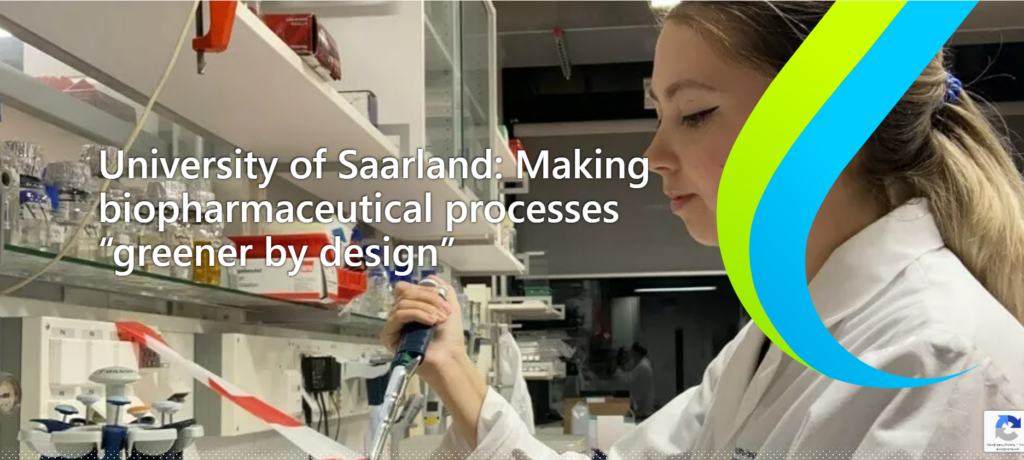The work of our graduate Alina Zayachkivska, who joined the laboratory of Andriy Luzhetskyy at Saarland University (Germany) in 2022, was mentioned in the news of the ETERNAL project. This project is carried out within the framework of the Horizon program and is aimed at reducing the damage to the environment during the manufacture of pharmaceuticals. The project is carried out by twelve participants from Germany, Spain, Ireland, Austria, Italy and Portugal. The total budget of the project is almost six million euros.
Alina completed her master’s degree at the Department of Biochemistry and Biotechnology. In 2022, she won a grant from the Federation of European Microbiological Societies (FEMS) for a three-month research internship in the laboratory of Professor Luzhetsky at Saarland University. During her internship, Alina investigated ways of changing the secondary metabolism of actinomycetes to synthesize new antibiotics. At Saarland University, she mastered methods of molecular biology and biochemistry, including polymerase chain reaction, liquid chromatography and mass spectrometry, and improved her skills in gel electrophoresis. Now Alina is entrusted with the key role of implementing part of the tasks of the four-year ETERNAL project from Horizon Europe.
Obtaining pharmaceuticals by organic synthesis sometimes requires extreme temperatures and pressure, as well as the involvement of a number of toxic substances that significantly harm the environment. At the same time, many drugs, such as antibiotics and anticancer substances, can be produced by bacteria from the Actinomycete phylum. Luzhetskyy’s research team reconstructs the metabolic pathways of actinomycetes, replacing all natural components of their genome with synthetic genetic elements. This makes possible to synthesize complex chemical compounds – in particular, new antibiotics – in actinomycete cells, rather than by organic synthesis.
Professor Luzhetsky is sure that the production of drugs can be improved due to genetic engineering of bacteria. In this way, it will be possible to produce only the desired active substances without by-products that harm the environment. Alina and Professor Luzhetskyy believe that very soon all antibiotics and other medicines will be produced by genetically engineered microorganisms. Because of this, the production of such drugs will be completely ecologically clean or release only a very small amount of toxic by-products into the environment.
Read more at the link:

